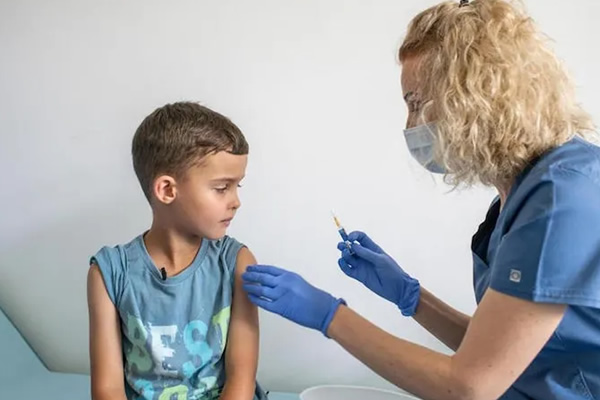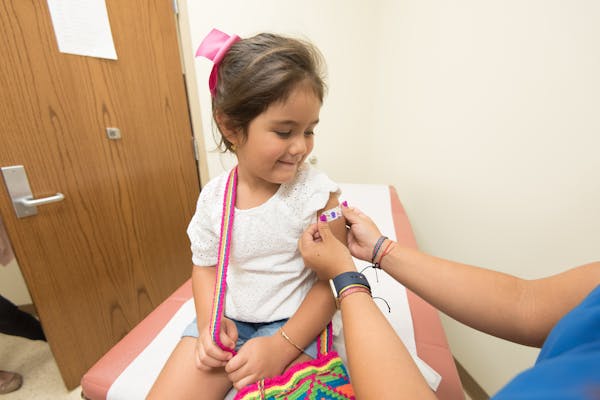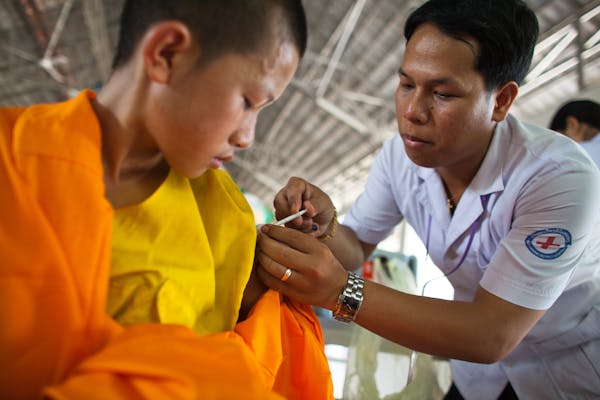
Child vaccinations have long been a cornerstone of pediatric healthcare, protecting our youngest and most vulnerable from a myriad of preventable diseases. In recent years, however, vaccinations have not only become essential but a subject of intense debate. To grasp the critical importance of child vaccinations, we delve into their significance, history, safety, and broader implications for public health.
Understanding The Importance of Child Vaccinations
Historical Perspective
Historically, vaccines have been instrumental in controlling and eradicating infectious diseases. Smallpox, a deadly scourge for centuries, was eradicated worldwide through a massive vaccination campaign. Polio, another crippling disease, is on the brink of global eradication due to vaccines. The importance of child vaccination cannot be overstated in safeguarding public health.
The concept of “herd immunity” has emerged as a central tenet of immunization. When a significant portion of a population is vaccinated, it offers indirect protection to the unvaccinated, particularly those who cannot receive vaccines due to medical conditions.
Yet, as effective as vaccines have been in the past, the landscape of pediatric vaccines is continually evolving. New diseases emerge, and the scientific community responds with innovative vaccines.
Vaccine Safety

Public Health Benefits

The importance of child vaccination cannot be overstated in understanding the advantages of widespread vaccination. Vaccine-preventable diseases are under control in many parts of the world, with some on the brink of extinction.
By preventing these diseases, we reduce the burden on healthcare systems, saving billions of dollars annually. Beyond the economic implications, vaccinations save lives, allowing children to grow up healthy, unburdened by the suffering and complications of vaccine-preventable diseases.
Furthermore, immunizations are not confined to national borders. They form a vital part of global health initiatives, safeguarding vulnerable populations and reducing the spread of diseases worldwide.
Vaccination Schedule
The CDC-recommended immunization schedule provides a roadmap for parents and healthcare providers, emphasizing the importance of child vaccination. It outlines which vaccines children should receive and at what age. Following this schedule ensures that children receive the right vaccines at the right time, maximizing their protection.
Age-appropriate vaccines, administered from infancy through adolescence, work together to provide a comprehensive shield against a range of diseases. In cases where vaccinations were missed or delayed, catch-up vaccines offer a safety net.
Common Childhood Vaccines
Several vaccines are fundamental in a child’s early life, including:
- Diphtheria, tetanus, and pertussis (DTaP)
- Measles, mumps, and rubella (MMR)
- Haemophilus influenzae type b (Hib)
- Hepatitis B
- Rotavirus
- Influenza
- Pneumococcal
- Varicella (chickenpox)
Each of these vaccines targets a specific set of diseases, reinforcing the immune system against various threats.
Impact on Herd Immunity
The Link Between Vaccinations and School Attendance
Many states require children to be up-to-date on their vaccinations before they can attend school. The Importance of Child Vaccination requirements aims to create a safe and healthy learning environment. Exemptions from these requirements are allowed, often for medical reasons, but sometimes for personal or religious beliefs.
While exemptions respect personal freedoms, they can compromise herd immunity. When a significant portion of a community opts out of vaccinations, it creates pockets of vulnerability where diseases can easily take hold and spread.
Balancing individual rights with public health is a challenging issue, and it’s one that has been at the forefront of vaccination discussions. The goal is to encourage vaccination while respecting individual liberties, but achieving this balance can be complex.
The Role of Pediatricians
Pediatricians play a central role in vaccination efforts, emphasizing the importance of child vaccination. They are not just healthcare providers but also educators and advocates for children’s health. Pediatricians are responsible for administering vaccines, tracking immunization status, and ensuring children are on schedule. They also play a pivotal role in communicating the importance of vaccination to parents.
Pediatricians need to be well-informed about vaccines and their safety to address parental concerns effectively. Building trust with parents is crucial, as they often look to their child’s doctor for guidance on vaccination decisions.
Emerging Vaccination Challenges
In recent years, the rise of vaccine hesitancy has posed significant challenges. The importance of child vaccination is crucial in addressing this issue, Vaccine hesitancy refers to a delay in acceptance or refusal of vaccines despite the availability of vaccination services. This hesitancy often stems from concerns about vaccine safety and misinformation.
The spread of vaccine misinformation, particularly through social media, has contributed to these concerns. Addressing vaccine hesitancy and countering misinformation is an ongoing effort. The scientific community and healthcare providers are continuously working to provide accurate information and engage in open, constructive dialogues with concerned parents.
The COVID-19 pandemic has also disrupted childhood vaccination efforts. Lockdowns and fear of exposure to the virus led to decreased vaccination rates in some areas. Ensuring that these missed vaccinations are caught up is a priority, along with maintaining vaccination efforts for new vaccines, like those for COVID-19.
The Cost of Not Vaccinating
The consequences of low vaccination rates are significant. They include an increased risk of disease outbreaks, such as measles and whooping cough. These diseases can lead to hospitalizations, complications, and, tragically, deaths.
Aside from the human toll, low vaccination rates also impose a considerable financial burden. Treating vaccine-preventable diseases strains healthcare resources, increasing healthcare costs for both individuals and society as a whole.
The economic cost of not vaccinating is substantial, but the human cost is immeasurable. Vaccinations are a cornerstone of public health, protecting individuals and communities from the devastating impact of vaccine-preventable diseases.
The Power of Education
Educating the public about vaccines is a powerful tool for increasing vaccination rates. Public health campaigns, school programs, and outreach efforts are essential to inform parents and dispel myths about vaccine safety. Healthcare providers also have a vital role in providing clear, accurate information to concerned parents.
Understanding how vaccines work, their safety records and the impact of vaccine-preventable diseases is critical for informed decision-making. Education empowers parents to make the right choices for their children’s health.
Ensuring Vaccine Access
Vaccines must be accessible to all, regardless of their socioeconomic status or geographic location. Some communities, particularly in rural areas or low-income neighborhoods, may lack easy access to healthcare facilities. These “vaccine deserts” can contribute to low vaccination rates.
Efforts to ensure vaccine access include mobile clinics, school-based vaccination programs, and initiatives to bring vaccines to underserved communities. Globally, organizations like Gavi, the Vaccine Alliance, work to ensure that vaccines reach vulnerable populations.
The Way Forward
Strengthening vaccine mandates and policies is crucial to maintaining high vaccination rates. States and nations must continue to enforce vaccination requirements for school entry while considering ways to respect individual freedoms.
Investing in vaccine research and development is equally essential. As diseases evolve, so too must our vaccines. Ongoing research is necessary to develop new vaccines, improve existing ones, and expand their availability.
Conclusion
Childhood vaccinations are an irreplaceable facet of public health, emphasizing the importance of child vaccination. They protect the most vulnerable members of our society and ensure healthier futures for all children. It’s the responsibility of every generation to safeguard the next by upholding the importance of vaccination.


